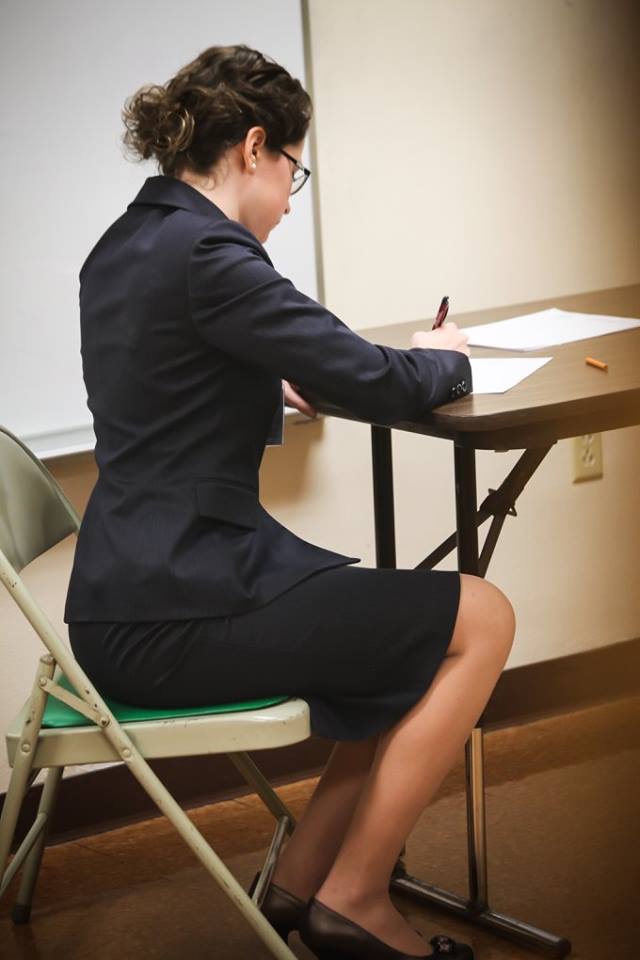
What is the point of a thesis statement? Is it valuable? Here, in this article, Abbey Lovett (soon to be Kish), briefly explores the topic of the thesis statement for Speech and Debate. For more of Abbey’s awesome teaching- join her this Fall as she brings students on a deeper understanding of Impromptu, through her – Lasting Impact! Online Impromptu Club. Sign up NOW! For more information, click here.
The Thesis Statement. Such an ominous and scary concept. Or at least that’s how I felt as a young communicator. In fact, I hardly ever used a thesis in my presentations because I couldn’t grasp the concept. What makes a good thesis statement? How do I make a thesis statement that fully grasps what I want to talk about? How do I present that statement in the speech?
These were all questions that overwhelmed me to the point of not including a thesis statement in any of my speeches. Then I started watching some of the best speakers in my group and realized that every single one of these speakers used a thesis statement and clearly communicated it.
I started exploring the importance of thesis statements and how to best incorporate them into my speeches and here’s what I came up with.
1. A thesis statement is essential to organizing your thoughts.
When you sit down to start writing a presentation, there are so many directions that you can take whatever it is you want to say. Having a lot of directions for you to go is often seen as a good thing! After all, there’s so much content you can pull from! Where people mess up is trying to fit every direction and every piece of content into their one presentation. This makes your speech look unorganized and not thought through.
In order for you to captivate your audience and give a memorable speech, you need to leave them with one idea.
When you sit down your first step should be coming up with that one idea (your thesis) and organizing your speech to support that thesis. If you stick to this strategy, your speech will be more organized and easier to follow for your audience.
2. A thesis statement needs to be clearly stated.
There are two traps that communicators fall into when they present a thesis statement in a presentation. Either (1) they are very formal and robotic in the way they present it: “My thesis statement is…”. Or, (2) they are worried about being too formal and robotic and they don’t state their thesis at all.
You don’t want to be in that first group because being too formal throws off the groove and the conversational tone of a presentation. You also don’t want to be in that second group of people because stating your thesis is important for your audience to be able to reference and remember as you progress in your presentation.
The best way to clearly present your thesis statement without sounding like a robot is saying something along the lines of “If there’s one thing I want you to walk away from this presentation with it’s this”
3. What is your One Thing?
The thing I struggled with most as a young communicator was deciding what my thesis statement should be. I had been taught for years that your thesis statement was the most important part of your speech to come up with. But how did I know what thesis statement was the right one?
The solution I came up with was to make my thesis statement simple and the first thing I came up with. For example, anytime I get a topic for a new presentation I ask myself “What is the ONE THING I want my audience to walk away with from this talk?”. The answer to that question is what I make my thesis statement.
Thesis statements are essential to organizing your presentation and captivating your audience. There can be a lot of confusion over what a thesis statement is, why they are important, and how to use them. The one thing I want you to take away from this blog post, is that a thesis statement is simply the one thing you want your audience to walk away with. Don’t overthink it.
–
Remember to sign up now for Abbey’s Impromptu Group! It’s a one semester class on Thursday evenings from 7:00-8:00 pm CT, starting in September. This group is perfect for those who want to succeed, not only in Speech and Debate, but any time you will need to think on your feet!
–
photo by: julieanne photography